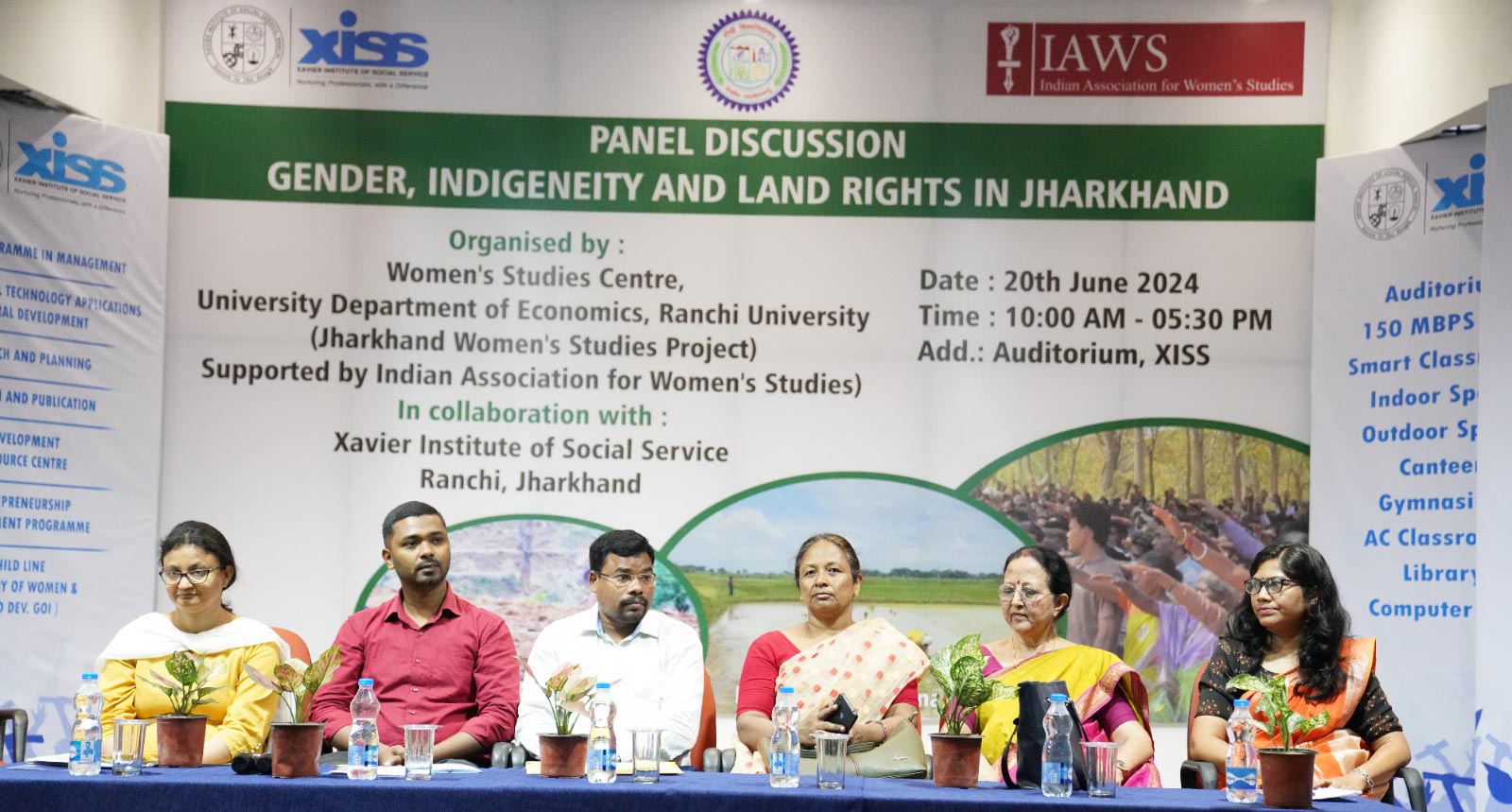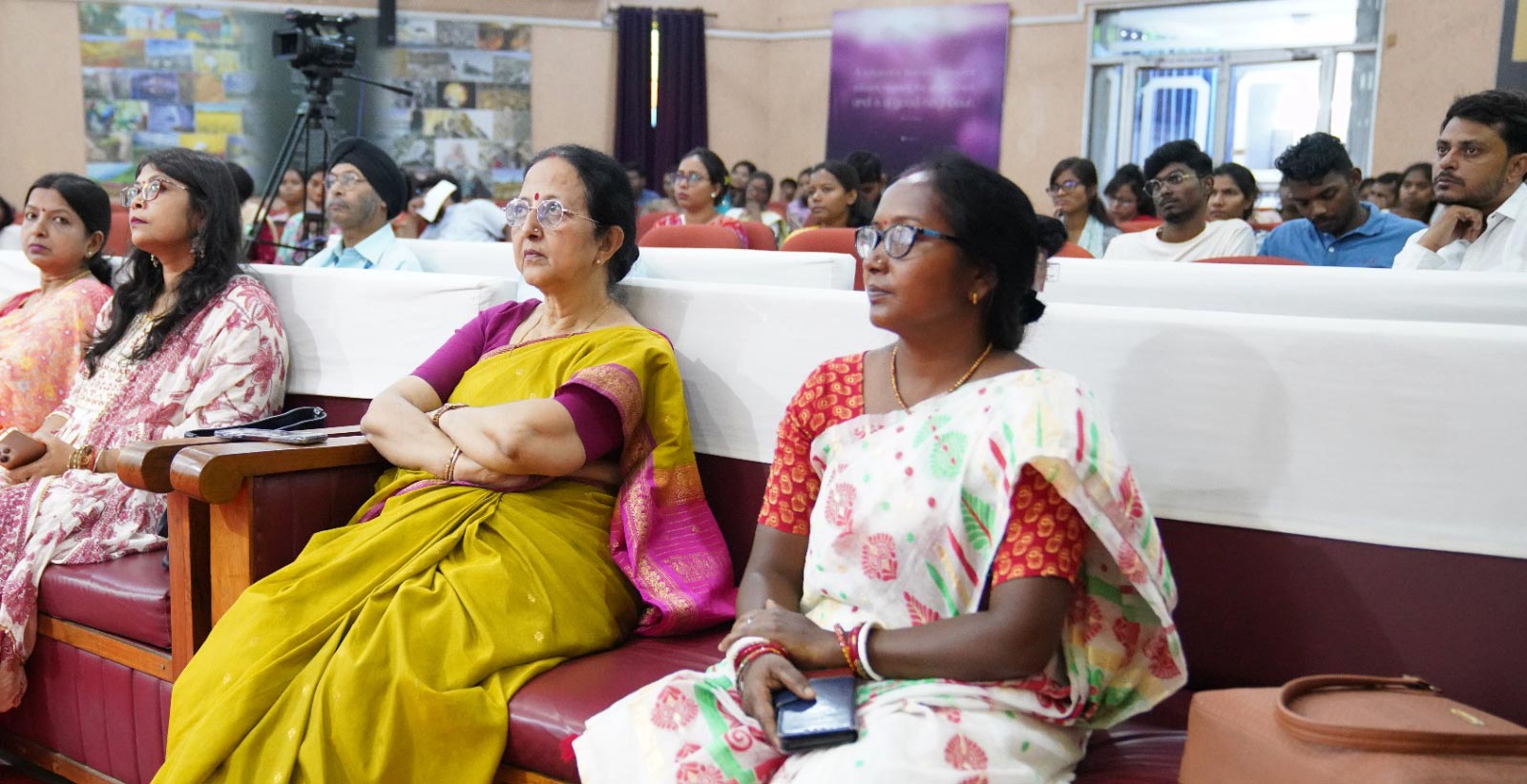Panel discussion on Gender, Indigeneity and Land Rights in Jharkhand held
Xavier Institute of Social Service (XISS), Ranchi and Indian Association for Women’s Studies (IAWS) in collaboration with Women’s Studies Centre, University Department of Economics, Ranchi University organised a Panel Discussion on ‘Gender, Indigeneity and Land Rights in Jharkhand’ at the Fr Michael Van den Bogaert SJ Auditorium in its campus.
Adivasis share a deeply intimate relationship with land. It not only forms a vital basis of their everyday material existence, but their spiritual, moral, and cultural lives are also profoundly woven around land. It serves as a crucial link to their ancestors and a cardinal element of Adivasi identity and communitarianism.

Relevant issues of land alienation, erosion of community rights over lands, consequent displacement, migration, and poverty, and how they have impacted the lives of Adivasi women in significant ways were the topics on which the panelists laid emphasis during the sessions.
The 1908 Chotanagpur Tenancy Act (CNTA), 1949 Santhal Pargana Tenancy Act (SPTA), the LARR 2013 and the Panchayat Extension Schedule Act (PESA) 1996 were also discussed in detail during the discussion. Dispossession and migrations are the reason behind the present precarious state of Adivasis along with the neo-liberal capitalists entering Adivasi lives, land acquisition, illegal mining activities and shrinking forest space. The legal frameworks in place for adjucating the land rights of Adivasi women were discussed extensively with reference to specific cases. At the same time, it was emphasised that the Adivasi understanding of a community, communal ownership and common consent was crucial to developing a grounded understanding of Adivasi women’s rights. However, such concepts cannot be understood as given. It is of equally important to understand such systems had been affected by larger processes and that these systems, institutions have been changing and these changes have significantly impacted Adivasi women’s rights. Thus, was highlighted the importance of the legal as a domain for enforcing women's rights.

The morning panel discussion was led by Dr Vandana Tete, Dr Shalini Saboo, Roshan Horo, Dr Sunita Purty and, Dr Ramchandra Oraon. While Dr Shalini Saboo brought forth the legal perspectives on the debate on inheritance of land within Adivasi customary law, Vandana Tete on the other hand foregrounded the perspectives on land as an ‘identity’ and collective property within Adivasi world view. Dr Purty on the other hand tried to demonstrate how in the globalised neoliberal era commodification of land has resulted in viewing land by Adivasi women as a capital which can help them deal with their future better as Adivasis today negotiate challenges of surviving within a capital driven economy. Finally, Dr Ramchandra Oraon traced the challenges legal implementation on the debates on Land succession by Adivasi women and forwarded his solution of developing an Adivasi perspective within the legal frameworks before jumping into legislation. The second panel embarked on the discussion around the political economy of land in today's context and saw the participation of Bitiya Murmu, Elina Horo, Nayan Kumar Soren, and Aloka Kujur.
The conveners of this panel discussion were Dr Ranjana Srivastava, Prof. In-charge, Jharkhand Women’s Studies Project, IAWS, and Dr Jyoti Prakash, In-charge, Women’s Studies Centre, University Department of Economics, Ranchi University. The coordinators were Amita Kumari, Convenor, Jharkhand Committee, IAWS, Dr Mamta Kumari, Coordinator, Women’s Studies Centre, Arunopol Seal, Research Grantee at IAWS & Doctoral Fellow, University of Westminster, U.K, and Dr Pramil K. Panda, Assistant Professor, Rural Management Programme, XISS.





